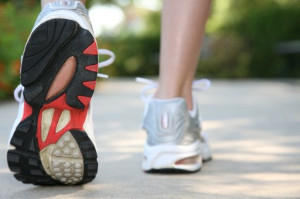
Selecting the right pair of running shoes is vital for both comfort and performance. Start by understanding your foot type and running gait, as this will influence the type of shoe you need. Consider factors such as arch height, pronation, and foot width to determine the appropriate level of support and cushioning. Next, prioritize fit, and your running shoes should feel snug but not constrictive, with ample room in the toe box to prevent discomfort and injuries such as black toenails or blisters. Look for shoes with breathable materials to promote airflow and prevent moisture buildup, reducing the risk of fungal infections. Additionally, consider the terrain and distance you'll be running, as different shoes are designed for various surfaces and distances. Finally, it is beneficial to include durability and quality in your shoe choice. This can consist of investing in well-constructed shoes from reputable brands to ensure longevity and support for your running endeavors. By carefully considering these factors, you can find the perfect pair of running shoes to support your fitness journey and enhance your running experience. If you are seeking additional knowledge about what to look for in running shoes, it is suggested that you consult a podiatrist who can provide you with pertinent information.
If you are a runner, wearing the right running shoe is essential. For more information, contact Dr. Richard Silverstein from Union Foot Care. Our doctor can provide the care you need to keep you pain-free and on your feet.
Choosing the Right Running Shoe for Your Foot Type
To increase performance and avoid the risk of injury, it is important to choose the right running shoe based on your foot type. The general design of running shoes revolves around pronation, which is how the ankle rolls from outside to inside when the foot strikes the ground.
- Neutral runners are able to choose from a wide variety of shoes, including minimalist shoes or even going barefoot.
- Runners who overpronate, or experience an over-abundance of ankle rolling, should choose shoes that provide extra motion control and stability.
- Runners who underpronate, or supinate, have feet that have high arches and lack flexibility, preventing shock absorption. They require shoes with more flexibility and cushion.
If you have any questions please feel free to contact our office located in Havre de Grace, MD . We offer the newest diagnostic and treatment technologies for all your foot and ankle needs.
